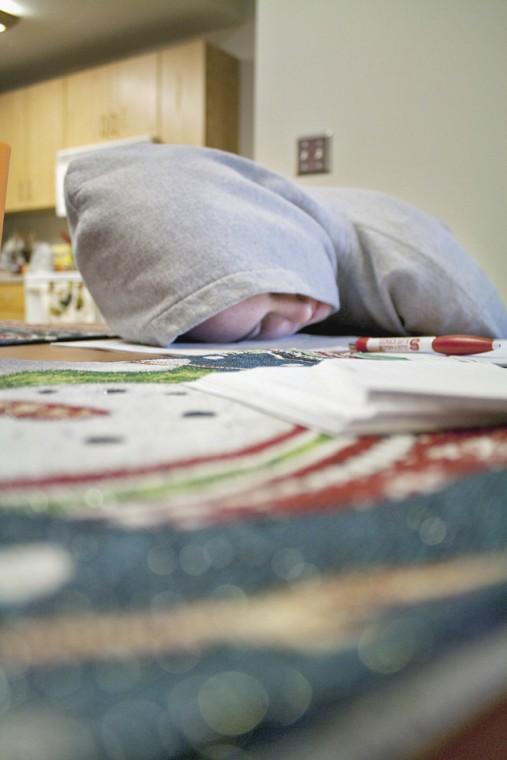As students constantly strive to keep themselves awake during class, through chugging energy drinks after partying until four in the morning, sleep seems to be out of the picture for college students.
According to the reports of National Sleep Foundation, 63 percent of the college students in the United States suffer from sleep deprivation.
Lee Salter, director of the University’s counseling center, said students are more likely to make mistakes, do badly on exams, and become more irritable and emotional the following morning when students do get enough sleep the previous night.
“They are more tired and it is more difficult to concentrate, more difficult to problem solve, and more difficult to remember information,” Salter said. “And those are pretty important factors while taking exams.”
Salter said the main reason students are sleep deprived is because they are not making sleep a priority.
“Students who come in the counseling center have difficulties with sleep and the things that help the most are waking up at a regular time every day,” Salter said. “You go to sleep very easily and tend to wake up very fresh and the hours that somebody needs depends on the individual but any student should get at least six to eight hours at night.”
Other factors to consider is having a comfortable and quite place to sleep, Salter said.
“Noise and discomfort can result in waking up and so can a place that is too hot or too cold,” Salter said.
In addition to being comfortable for a good night’s rest, it is also important to have a consistent sleep schedule, Salter said.
“With jobs and school schedules, people need to be able to get up and be fresh in the morning,” he said. “Some people need to change schedules. Napping during the day is not the best solution. It is better to get sleep all at the same time.”
According to the National Sleep Foundation, a short nap of 20 to 30 minutes can improve mood, alertness and performance.
However, there are negative effects to napping if its lasts for more than 30 minutes.
The Foundation reported that too much sleep can be accompanied by sleep inertia and may adversely affect the length and quality of nighttime sleep.
Sheila Mondragon, a freshman in First Year College said she gets about four hours of sleep almost every school night and takes a nap every day for about an hour or two.
“This is going to affect me because I will gain weight and not be able to concentrate in school,” Mondragon said. “My grades are dropping ever since I started to sleep late. I can’t focus in class and I’m falling asleep most the time.”
Students who visit the counseling center to seek help for sleeping problems are not abiding by a normal sleep schedule.
Overall, Salter said the main reason students are sleep-deprived is because they are not making regular sleep patterns a priority.
“Once a person establishes a sleeping pattern and the conditions are right, but it’s still not working for their sleep then we would need to see what could be happening medically,” Salter said.
Mondragon said she chooses to procrastinate most of the time.
”When I am trying to get my stuff done, I’ll be on Facebook or I’m just talking to people at the library,” Mondragon said. “I think college students should be expected to stay up late a lot.”
She also said students do not have the leisure of getting the required amounts of sleep during the night
“Staying up late is a must and not a choice,” Mondragon said. “You want to get your stuff done so you just do it and it doesn’t matter how long it is going to take you to complete your work.”
Yet, Mondragon said she should change her habits before it affects her in the long run and should try to get more sleep during exams to retain that knowledge throughout the day.
“I plan on studying next week during the day so I can get my eight hours of sleep at night and hopefully score well on my exams,” Mondragon said. “I learned my lesson as a freshman.”








